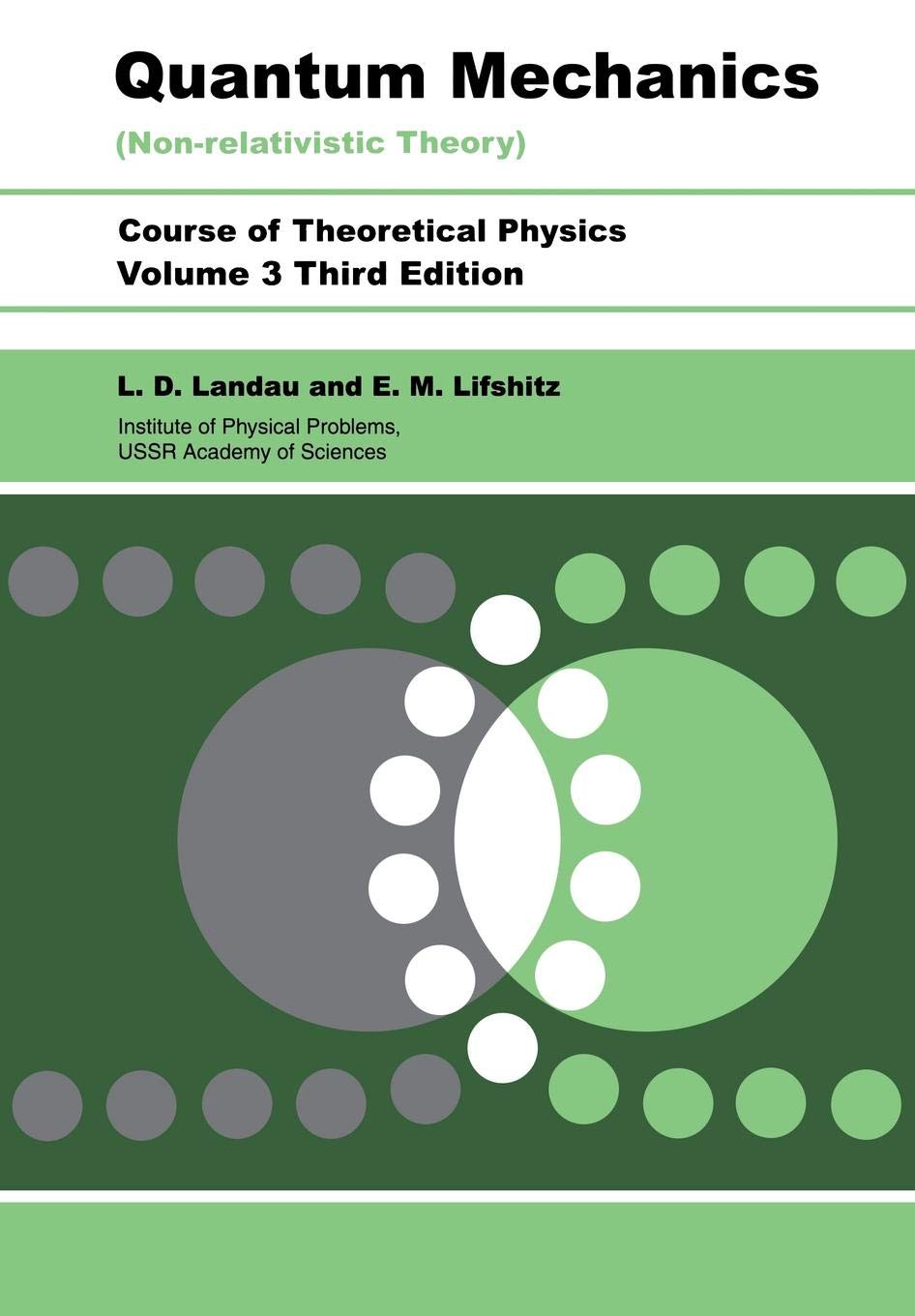Quantum Mechanics (Book)
Quantum Mechanics is mathematically simple compared to the previous two foundations of physics - classical mechanics and fields. It is linear, so no complicated manifolds like in mechanics or relativity. This is deceptive, but is a helpful crutch when first learning the subject. The true nature of quantum mechanics is geometric: the projective geometry of Hilbert space, geometric quantization from classical/symplectic geometry to quantum phase spaces, the moment map in symplectic geometry gives the map to the convex space of probability distributions, the bundles and connections appearing in the quantum Hall effect, and finally it is also a task to precisely interpret generalized functions, spectra of self-adjoint operators on function spaces, (projective) unitary group representations, and kernels/matrices of these general operators.
| Quantum Mechanics | |

| |
| Information | |
|---|---|
| Author | Lev Landau |
| Language | English |
| Series | Course of Theoretical Physics |
| Publisher | Butterworth Heinemann |
| Publication Date | 1977 |
| Pages | 677 |
| ISBN-13 | 978-0-7506-3539-8 |
Applications
Induced Representations of Groups and Quantum Mechanics
Induced Representations of Groups and Quantum Mechanics by George Mackey.
Generalized Functions: Applications of Harmonic Analysis
Generalized Functions: Applications of Harmonic Analysis by Israel Gelfand and Naum Vilenkin.